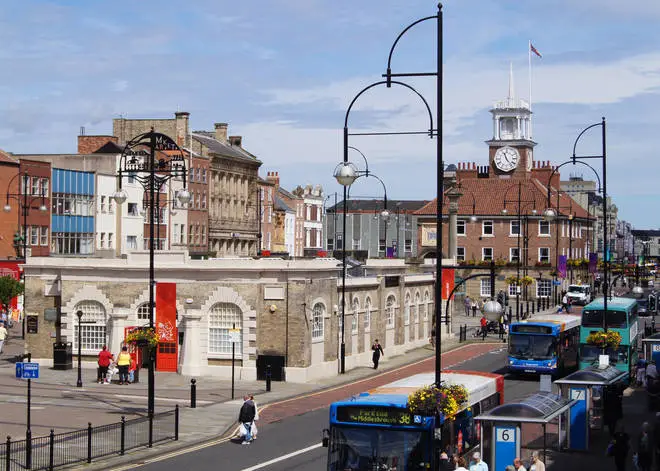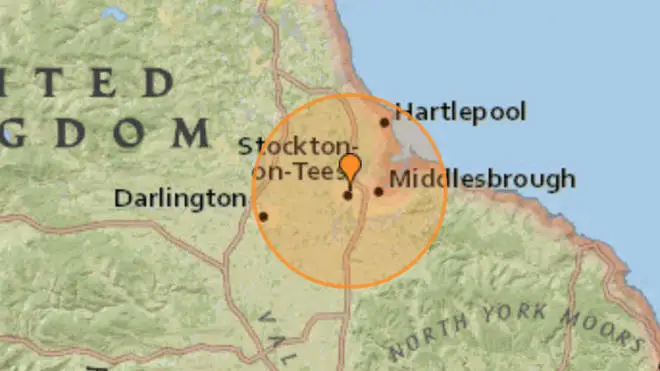
Matthew Wright 7am - 10am
23 January 2020, 10:42 | Updated: 23 January 2020, 11:21

An earthquake with a magnitude of 3.0 has rocked residents in parts of north-east England.
Residents woke up to the quake this morning, with houses shaking ‘like a train’
The quake’s epicentre was 2.5 miles (4km) below Stockton-on-Tees and was recorded at 5.57am on Thursday so was likely to have startled people in bed.
People reacted to the quake on social media, with one user saying it "bad enough to wake us up" and another saying that it shook their house "as if a train went past my bedroom window".

Another posted that it was a "strong earthquake (for England)", saying that the "whole house shook and electricity flickered".
"Wow that's a first, felt an #earthquake in Stockton around 6am this morning", one user said.
The United States Geological Survey estimated the magnitude of the quake at 2.8 but that was revised upwards by the BGS to 3.0 following local analysis.
BGS seismologist Glenn Ford said the shaking would have lasted for a few seconds, and could have been strong enough to knock over ornaments in people's homes.
He said there were usually just three 3.0 magnitude earthquakes in the UK every year, compared with around 100,000 elsewhere in the world, with even more stronger ones recorded globally.
Mr Ford said: "We are not terribly seismic in the UK, people are just not calibrated to them.
"People would not have looked up from their newspaper for this one if this happened in Greece.
"This one happened under a heavily populated area.
"There would not have been much traffic and so they can actually perceive the earthquake.
"People would have been lying in bed, so they would perceive it themselves."
He added: "There would have been a rumbling noise, a little shudder, it would only have lasted for three or four seconds."
Mr Ford said that, although the UK is not on any major fault lines, it is criss-crossed by smaller ones which still experience stresses from time to time.